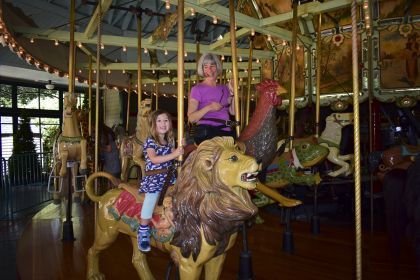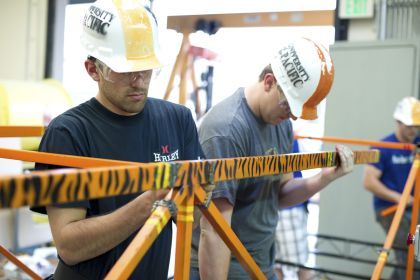Breadcrumb
Student Health Services focuses on overall well-being
Student Health Services at University of the Pacific has received 1,175 telehealth visits and inquiries since late March.
The staff is prepared to handle more student health needs, said Dayna Cerruti-Barbero, director of Student Health Services.
“We are here to educate and empower students with preventative health and well-being tools and resources,” she said. “We are trying to make sure we reach out to students and provide them the resources to stay well during COVID-19 and beyond.”
Cerruti-Barbero’s staff of 12 on the Stockton, Sacramento and San Francisco campuses utilizes national telehealth resources customized to serve the needs of Pacific students.
“We have digital college health and well-being resources that have worked very well,” she said. “Our CampusWell platform’s utilization has increased over 97% since last July with more than 6,500 visits.
“Pacific also was the pilot site for College Health TV and we now have a large health and well-being video collection available on our website. Students have free access to telehealth services for health care navigation, student health insurance questions, clinical dietician visits and preventative health coaching.”
Student Health Services also has collaborated with community health entities, including San Joaquin Public Health Services, Dignity Health and Primary Care Group.
“We are trying to make sure we focus on preventative health because of the anxiety and depression that is going on with college students,” Cerruti-Barbero said. “This is a difficult time for many of them and we want to make a difference in helping with their general well-being.”
College-age students have become comfortable with telehealth measures, which Cerruti-Barbero said, “speaks their language. The Campus Well and College Health TV platforms are geared to 18- to 28-year-olds and they often find these services are comforting. We are filling a lot of gaps.”
Cerruti-Barbero said students’ dietary needs and practices are crucial. The university’s food services emphasize healthy eating but, on their own during distance learning, some students are more liable to have food challenges or bad dietary habits.
“We have a clinical dietician who will make appointments to meet with students,” she said. “That person can serve as a health coach and help students come up with a resilience plan. We can help students make sure they get enough sleep, exercise and eat healthy.”
Cerruti-Barbero said Student Health Services is prepared for the day when on-campus learning is re-started.
“The great thing is our cabinet and our leadership team and the emergency response team has had our re-opening plan in place,” Cerruti-Barbero said. “We are ready to go and will be set when conditions are right for a return to campus.”





